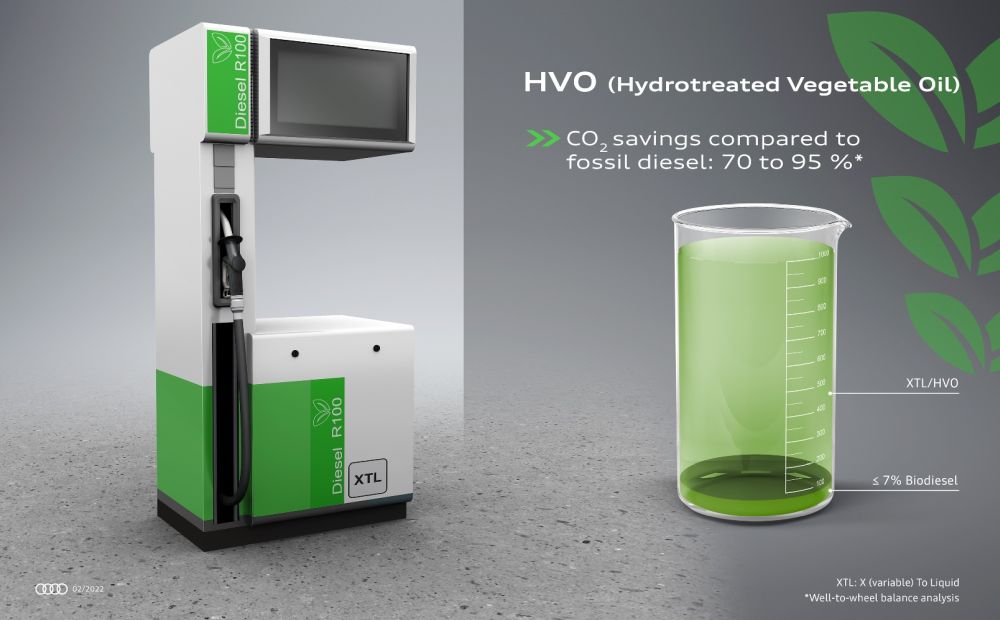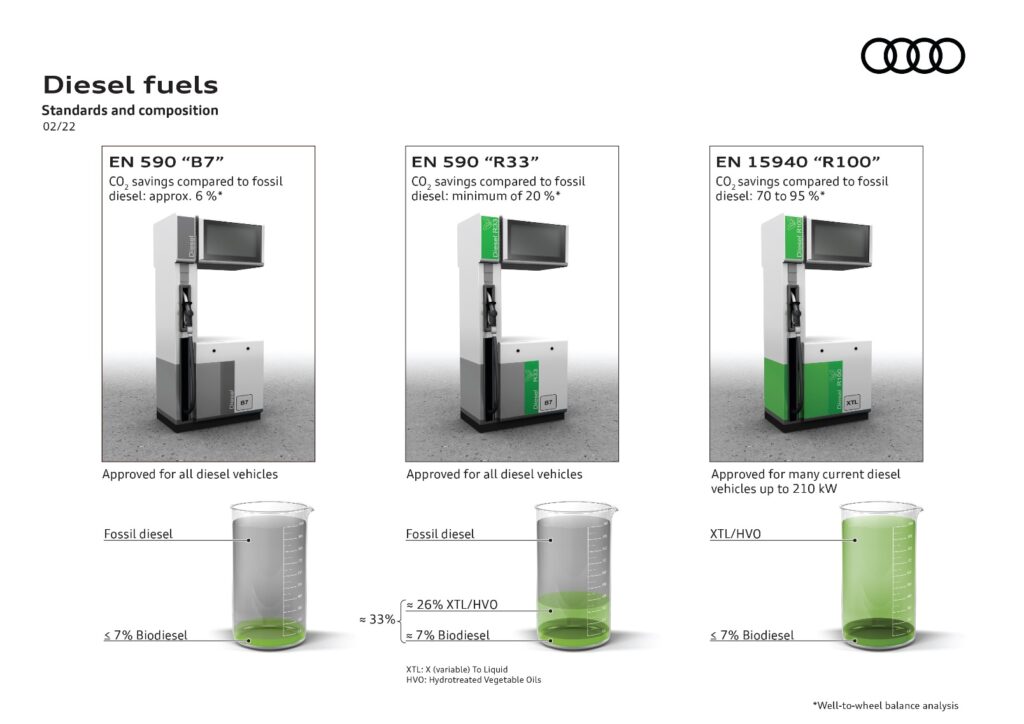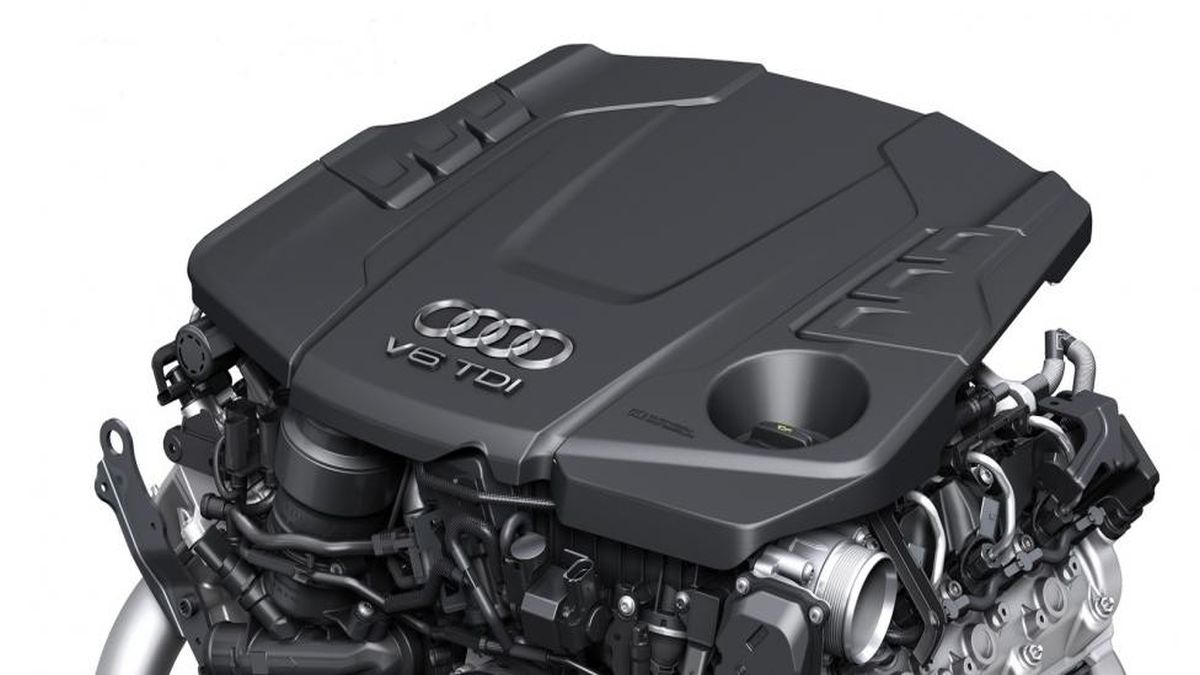It now seems increasingly clear that the future of the automotive industry lies in electric motors, although perhaps the battle for combustion engines is not yet entirely lost. An example is offered by Audi and its Vorsprung 2030 plan, which aims that all models launched from 2026 are fully electric, but at the same time continue to seek solutions so that combustion engines are sustainable for the environment.
But the tricky thing is how to make combustion engines even more efficient. And in this sense there are also European regulations that are increasingly rigid. But Audi does not seem to give up and wants to achieve this by focusing on renewable fuels, better known as reFuels, and more precisely on HVOs.
Audi believes in HVO fuel for its V6s
HVO, (acronym for Hydrotreated Vegetable Oil, literally a hydrogenated vegetable oil), is a sustainable fuel already available in more than 600 service stations in Europe, most of them in Scandinavia. This allows to reduce CO2 emissions between 70% and 95% if we compare it with diesel of fossil origin. Indeed, HVO it is obtained through cooking oil used in the food industry or agricultural waste, to which hydrogen is added to convert it into aliphatic hydrocarbon, thus modifying its properties to allow its use in diesel engines. In addition, it can be used blended with conventional diesel or without blending, as a totally pure fuel.

HVO fuel is governed by the standard EN 15940 and for its denomination the term XTL (X-to-liquid: X to liquid) is used, where the “X” represents the original component, for which HVO is classified among the fuels BTL (biomass-to-liquid). But this is not the only method of producing synthetic diesel, we also have the GTL (gas-to-liquid) and the PTL (power-to-liquid), the latter able to be obtained in a sustainable way through renewable electricity, water and CO2 from the atmosphere itself.
Biodiesel also offers another advantage: “The cetane number of HVO, which is about 30 percent higher, makes engines more flammable, which is especially noticeable during cold starts”, explains Matthias Schober, head of development of Audi’s V-TFSI, TDI and PHEV powertrain

In this way, Audi has managed to homologate under this standard all V6 engines up to 286 hp power present in the ranges A4, A5, A6, A7, A8, Q7 e Q8 which are produced starting this February. It will also arrive in early March the Audi Q5 and in summer the Audi A6 Allroad, being expanded for engines up to 245 hp. But HVO has also been approved in Europe for 4-cylinder diesel engines of the Audi A3, Q2 and Q3 produced from June 2021 and, the models using the longitudinal modular platform, the four-cylinder TDI engines of the A4, A5, A6, A7 and Q5 ranges can use the HVO as early as the middle of last year in Sweden, Italy and Denmark, where the demand for these engines has increased.
















Leave a Reply
View Comments